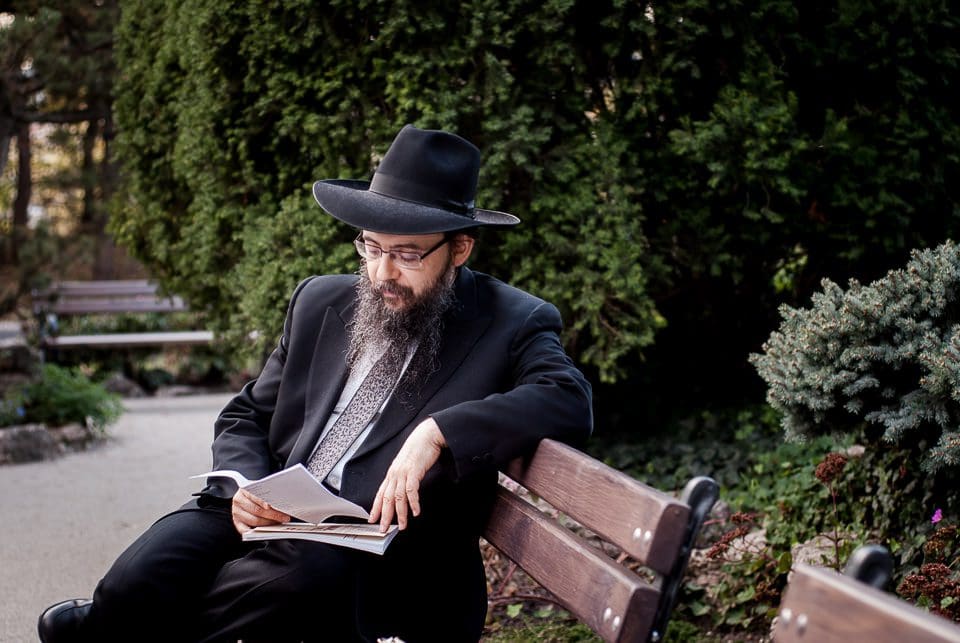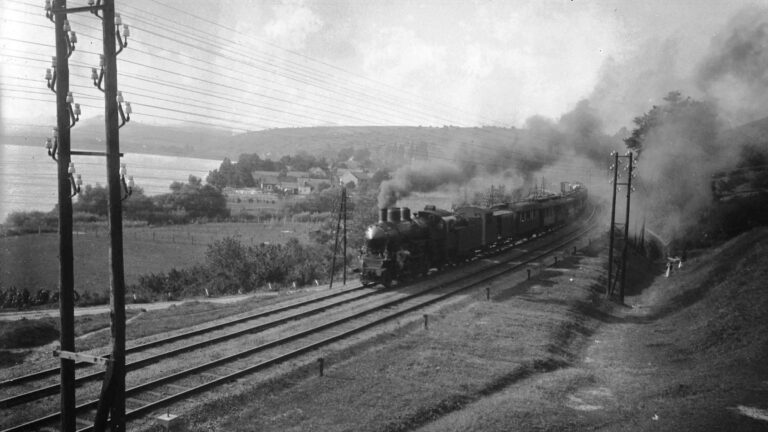In the new podcast series of the Danube Institute, ‘Judaism and Anti-Semitism in Hungary’, the first episodes were joined by Rabbi Baruch Oberlander, head of the Budapest Orthodox Rabbinate. He highlighted the fact that although in the Western media Hungary is often portrayed as a place where anti-Semitism is still a major concern, Hungary is one of the safest European countries for Jews to live in.
A new podcast series, ‘Judaism and Anti-Semitism in Hungary’, was launched by the Danube Institute in early October this year. The series follows the publication of the Institute’s two-volume book titled ‘Anti-Semitism in Hungary: Appearance and Reality’. The first two episodes about the history of Orthodox Judaism and the perception of anti-Semitism in Hungary were joined by Rabbi Baruch Oberlander, chief leader of the Chabad/Lubavitch community and the head of the Budapest Orthodox Rabbinate.
Born as a child of Holocaust survivors, Baruch Oberlander was raised in New York and got a very traditional Jewish education. As he became a rabbi, he moved to Hungary in 1989, just before the system change began. He is the current leader of the Hungarian Chabad community, which is part of the Orthodox Lubavitch movement, aiming to renew Judaism without reforming. After the Holocaust, there did not seem to be much of a future for religious Jews; however, the Lubavitch movement offered hope to those who couldn’t find their way back to Jewish tradition and law. Judaism provided answers to the most fundamental questions about human existence, such as the purpose of life, which was very much needed in the years following the Holocaust.
When Rabbi Oberlander arrived in Hungary in 1989, only a small but still functioning Hungarian Jewish community existed within the country. Although after Trianon in 1920, Hasidism remained a thriving form of Orthodoxy in Hungary, and even after World War II, there was a solid Orthodox Jewish life, after 1956 most of the Jews in the countryside left, and the Jewish community became smaller and smaller. He realized that there was much work to be done, as it was mainly the older generation which was active among both the Neolog and Orthodox Jewry, while younger people were not really involved.
The story behind Rabbi Oberlander’s arrival in Hungary is unique and noteworthy. According to the rabbi, Rabbi Schneerson, also known as the ‘Lubavitch Rebbe,’ one of the most influential Jewish spiritual leaders of the 20th century, told Rabbi Oberlander that unless he found a working kosher mikveh (ritual bath) in Hungary, he should return to New York. However, he found the only working mikveh in Budapest, probably the only one in the whole country, so he stayed.
Talking about the Neolog and Orthodox Jewish communities living in Hungary, Rabbi Oberlander highlighted that most Jews in the country do not belong to any of these two communities but are labeled as ‘unaffiliated.’ That is something that leads to the greatest enemy of Judaism: assimilation, and to the lack of knowledge about Judaism, because ‘people don’t know what they are missing or leaving out of their lives. And if you don’t know about it, you don’t care about it.’ His most important task stems from this: to teach Judaism to more and more people and to be there to spread the information and get people— especially the youth—interested.
The sensitive issue of anti-Semitism was also discussed in the podcast. In the Western media and academia, Hungary is still portrayed as having a major anti-Semitism problem, including anti-Semitic violence. Rabbi Oberlander approached this issue in a very practical way by answering the question: ‘are Jews afraid to walk on the street?’ As the answer is absolutely no, it follows that Hungary is a safe place for Jews, which cannot be said about other countries in Europe. Anti-Semitism is not considered to be a major problem at a practical level in Hungary, and some organisations are working to keep it that way, such as the Action and Protection Foundation, initiated by the Unified Hungarian Jewish Congregation (EMIH). Moving on to other sensitive issues, such as the perception of the Horthy era, the rabbi opined that there was a problem with the pick-and-choose tactic of the international media. Mainstream outlets choose what they want to highlight about Hungary, which usually doesn’t show the whole picture. Instead, the press should show the whole picture and let people decide what is wrong and what is right, he remarked.
There are divisions within the Hungarian Jewish community, Rabbi Oberlander acknowledged, as illustrated by the conflict between MAZSIHISZ (the Federation of Hungarian Jewish Communities) and EMIH. Although there is a deep political, cultural, and personal divide between the two organisations, both have the same priority: getting young and old Jews to reconnect to Judaism. The greatest challenge is the high number of unaffiliated Jews and the low activity of the members within the community. The situation was made more difficult by the Covid pandemic, during which many synagogues were closed, and it is not easy to regain people’s interest. However, Rabbi Oberlander was optimistic about the future, referring to the fact that ‘Judaism is living a renaissance in Budapest, which means that many, many younger and older people are attending different Jewish programmes, of which a large part are EMIH and Chabad events.’








